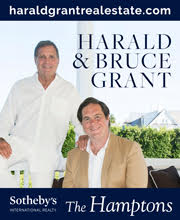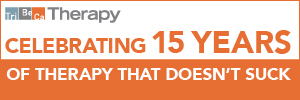The Parking Vigilantes
 Last week, I reached out to the folks behind @Placardabuse, who are on a mission to put a stop to the institutional corruption that allows cops and other city employees to park illegally and break other laws, about doing a Q&A. I had it all ready to post this morning, and then yesterday, Mayor Bill de Blasio went and announced placard reform. So we’ll get to that in a subsequent post. First, here’s the Q&A that @Placardabuse did via email.
Last week, I reached out to the folks behind @Placardabuse, who are on a mission to put a stop to the institutional corruption that allows cops and other city employees to park illegally and break other laws, about doing a Q&A. I had it all ready to post this morning, and then yesterday, Mayor Bill de Blasio went and announced placard reform. So we’ll get to that in a subsequent post. First, here’s the Q&A that @Placardabuse did via email.
Can you describe the problem of placard abuse?
Placard corruption is simple in nature, but it has far-reaching impacts. Individuals who have been issued official parking permits, or who have fabricated their own fakes, are allowed to break laws because of systematic non-enforcement. Most frequently, the placards are used to park illegally, but are also widely used to avoid enforcement for other violations like illegal license plate covers, etc., that would be issued a summons by Traffic Enforcement Agents (TEAs) when parked on New York City streets.

 You’re also watching other ways people abuse the system—such as license-plate covers to avoid tolls. What are the other things you keep an eye out for?
You’re also watching other ways people abuse the system—such as license-plate covers to avoid tolls. What are the other things you keep an eye out for?
We try to keep the scope of this account to corruption involving placards, but there is a wide range of illegal activities associated with them. It’s not just illegal parking. There are the illegal license plate covers, which are designed and used for the sole purpose of evading enforcement cameras (which protect against dangerous driving like running red lights and speeding in school zones, keep cheaters from impeding bus lanes, or catch people stealing from the tolling authorities). We also routinely see cars parked on public streets with expired registrations and safety/emissions inspections that are passed over by the TEAs because of their placards. And it gets worse when we consider the cover-up. We have documented systematic falsification of records by multiple precincts that close out 311 complaints involving placards to let the guilty parties break the law. Unfortunately, the District Attorneys, whose offices are routinely observed participating in placard corruption, have refused to prosecute these felonies. Instead, they are putting the same officers who are falsifying these records on the witness stand as credible witnesses for juries to believe when determining the guilt of the accused.
 A lot of your photos are from Tribeca. Is this area just especially ripe for the problem because of the many government offices?
A lot of your photos are from Tribeca. Is this area just especially ripe for the problem because of the many government offices?
We try not to talk much about ourselves for a number of reasons. Most importantly, this isn’t really about us. This is an issue that affects the safety and quality of life of all New Yorkers, and we want to keep the discussion focused on the facts instead of letting personalities become a distraction. Additionally, some of our contributors have encountered harassment by the police, ranging from late-night phone calls, having their photos posted on the internet with menacing comments, and even a nighttime visit from the Internal Affairs Bureau with hostile questions about somebody’s motives for making a complaint about a vehicle with license plates that were covered and didn’t match the placard on the dashboard. That said, we have a couple contributors who are in Lower Manhattan.
Placard corruption needs two things to become endemic: people with placards and heavy demand for parking. Some of the lower density areas of the city do not see the same problems, even around police station houses and fire houses, because the areas are relatively well-served for parking. Even then, we sometimes see issues when drivers prefer to park closer and use a placard to park illegally instead of using a legal space a little farther away. But Lower Manhattan attracts people from the entire metropolitan area and parking is always at a premium. It is challenging to find sufficient parking for the government workers on legitimate business, but the reality is that much of the problem is the result of “professional courtesy.” That is the Orwellian euphemism for allowing law enforcement colleagues to get away with break the law, with the quid pro quo understanding that they’ll return the favor when the shoe is on the other foot. So for example, if an off-duty officer wants to go shopping downtown or visit the 911 Memorial with his family, he will just park near a station house, throw his placard on the dashboard, and he won’t get ticketed. After the parking set aside for use by the station house fills up, on-duty officers start parking in illegal locations in the area, blocking bus stops, fire hydrants, no standing zones, etc.
 How did you get interested in the topic?
How did you get interested in the topic?
Everybody comes to this issue in their own way, but there seems to be a common thread. There is one location that causes a problem for you in some way, so you make complaints to 311—and you quickly discover that the system is not working. Then you start to look around and realize how widespread the problem is.
@NYPDTransit @NYCTBus @NYPDONeill @MTA @NYCMayor @ydanis @DOINews @CM_MargaretChin @TribecaTrib @tribecacitizen @GaleBrewerNYC @transalt @Veevanterpool @Straphangers @capntransit We work here & sometimes there’s no parking next to the door, so we just use the bus stop. Not like anyone else needs it to get to work. pic.twitter.com/7hvjwT8cNF
— placard corruption (@placardabuse) May 19, 2017
You’re not afraid to engage cops about it. Have they ever given you trouble about it?
We think it is helpful to politely engage TEAs to document the systematic non-enforcement and try to get information about who is responsible for their orders to allow people with placards to break the law.
We generally discourage our contributors from approaching police officers, but emphasize the value of recording any interaction if they are stopped. We are dealing with people who are already breaking the law, so it’s prudent to assume they may cross other laws when dealing with somebody trying to hold them accountable. There are people we correspond with who were involved with earlier efforts who have been arrested for legally taking photos, but fortunately the worst any of us has experienced is the harassment mentioned earlier and some stops with hostile discussions.
 Why do you think this is such a big deal? Because a little corruption leads to a lot?
Why do you think this is such a big deal? Because a little corruption leads to a lot?
Fundamentally, a system where some people have to play by the rules and others do not is unfair and cannot be tolerated. This is a tale of two cities: those who abide by the law and those who get over on us. We need to be consistent and clear in our principles that we live in a country with liberty and justice for all. When those we pay to enforce the law break it instead, and take an authoritarian attitude toward the people they are supposed to serve, we lose some of our liberty. When those who have connections get away with breaking the laws rigidly applied on the rest of us, that is not justice.
But this is not some idealistic, philosophical issue. Many of the parking violations are a significant problem in their own right. After all, these laws were enacted by our elected representatives for a reason. It’s dangerous when cars block fire hydrants, park in no standing zones that need to be clear to allow fire engines to turn onto streets or allow drivers and pedestrians to see traffic in intersections. Blocking bus stops can keep people with disabilities from being able to board the bus, or may make it a harrowing experience with the generous assistance of other passengers and a delay for everyone on that run. Even parking in no parking zones at places like churches can be a problem, since those spaces are legal with a permit for people with disabilities. When somebody from the Department of Buildings or an off-duty police officer decides to park there because it’s more convenient, they’re parking in a handicapped parking space and it may not be available when somebody needs it. It also has a serious impact on the city’s financial health. With so many of the loading zones for deliveries blocked, especially in Lower Manhattan, truck drivers are virtually forced to park illegally to have any chance of getting things delivered. This makes life more stressful and dangerous for the truck drivers and everyone in the area they serve. The extra time required and the mountains of tickets that delivery companies rack up are extra expenses passed along to consumers, and part of what makes the cost of living in NYC so high. There’s also a massive loss of meter revenue by the City of New York from so many spaces illegally used as daylong parking by people with placards.
Further, we believe placard corruption does contribute to more serious crime. As we already mentioned, there is a well-established pattern of police officers falsifying records to cover up illegal parking by their colleagues. That itself is a felony. This erodes our ability to trust them to be honest in general, and we recognize that they have a well-practiced machinery already in place to allow them to cover up more serious misdeeds. We are concerned that the attitude that they are not bound by the laws they enforce can foster feelings of superiority that lead to abuse, and there are strong fears their illegal activities may continue beyond what they do with their personal vehicles.
In addition to the temptation it creates as a “gateway” into other forms of corruption, allowing placard corruption to go undisciplined leaves the public exposed to the evils of the small number of “bad apples.” Because they are not identified by their pattern of behavior at this level, those “bad apples” are not recognized and removed until after doing something much more catastrophic to somebody’s life.
 How can people help in your fight?
How can people help in your fight?
There are a number of ways people can help.
1. Pay attention to the upcoming elections and pressure the candidates. Let them know this issue affects your community and you expect them to eliminate placard corruption. Call them out for wishy-washy statements.
2. Put pressure on the NYPD for enforcement from TEAs and the precincts. Email the police commissioner: pc.office@nypd.org.
3. Use 311 to report those illegally parked cars and include a note that it has a placard. The NYPD is systematically ignoring this, but as the data mounts it will become increasingly difficult to keep hiding the issue and it provides the evidence for any prosecutor that decides to do the right thing.
4. Report the problem to the city’s Conflicts of Interest Board (citizencomplaints@coib.nyc.
5. Follow us on Twitter and encourage your friends to follow us. Retweet our feed to your elected officials [Margaret Chin, @CM_margaretchin; Manhattan Borough President Gale Brewer, @galeabrewer; Public Advocate Tish James, @tishjames] with comments about how this affects you. Let them know you’re a voter and you care.
6. Take photos and tweet about it. Send it to us and we’ll post it, or if you would prefer just tweet it yourself.

















Why don’t we get parking permits for residents who actually live and pay really high real estate taxes?
I mean, if you are a resident why should we be restricted to park at your own place of residence?
I think the issue is parking illegally, like in bus stops, crosswalks, bicycle lanes, etc. Not sure how resident permits would help.
Also, people with fake placards and other official-looking stuff often park in metered areas, taking up space that should be for residents and visitors.
Thanks for covering this. We have neighbors who use their city-issued pass for unrestricted street parking. They don’t use the car for work but end up saving a ton to park on the taxpayer dime. Grrr.
On a related note, as temperatures rise, tour buses have taken over our roads, bus lanes, and no-parking spots. I repeatedly ask drivers to cut their engines that they idle for long stretches when parked illegally, and am usually treated pretty roughly. It’s pretty obvious these parking violations are going on, why aren’t these tour operators fined? It’s like a giant open-air bus depot on West Street, groups unloading from middle lanes, stopping traffic and buses parking opening in MTA bus, no standing or parking lanes. Why aren’t these curtailed?
One thing to consider about “bad apples.”
The full saying is “One bad apple spoils the barrel.” Something to consider by those who think this isn’t a big deal because it may be something that only a minority of officers do.
Thanks for highlighting this problem. On-street, legal or illegal, police parking is a tremendous detriment to Lower Manhattan public safety. One only needs to walk around on holidays to see how much safer (and better) our streets and sidewalks become when cars aren’t parked haphazardly, especially near crosswalks and bus loading zones.
A huge problem too about this kind of low-grade corruption is how corrosive it is to public trust. When corruption is routinized, it really makes it easy to dismiss the authority of law enforcement, who do little to enforce laws. Walk around on a weekday with a four-year-old and try to explain why the police, who are supposed to secure public safety, park their cars in ways that make everything more dangerous — I can’t come up with an honest defense. This is the most common everyday experience with law enforcement most of us have downtown and it doesn’t look good for the police, especially when a four-year-old can immediately recognize the hypocrisy.
Ticket and Tow them all and let them prove the Placards are real.
Spruce Street and Gold Street in the early morning (530am dog walk) is just one car after the other running red lights and stop signs on their way to work at Police Plaza.
When is the DoT going to step in with a plan for the tangle at 6th, Lispenard, and West Broadway? It is a mess and a hazard to pedestrians. The cops from Transit #1 park wherever they please with half-vehicles up on the sidewalk.
Transit 2, not 1
http://www.nyc.gov/html/nypd/html/transit_bureau/district_02.shtml
Thanks for this great interview. I’m particularly bothered by the covers on all the license plates, and the fact that recent articles have shown many of these covers are owned by police officers.